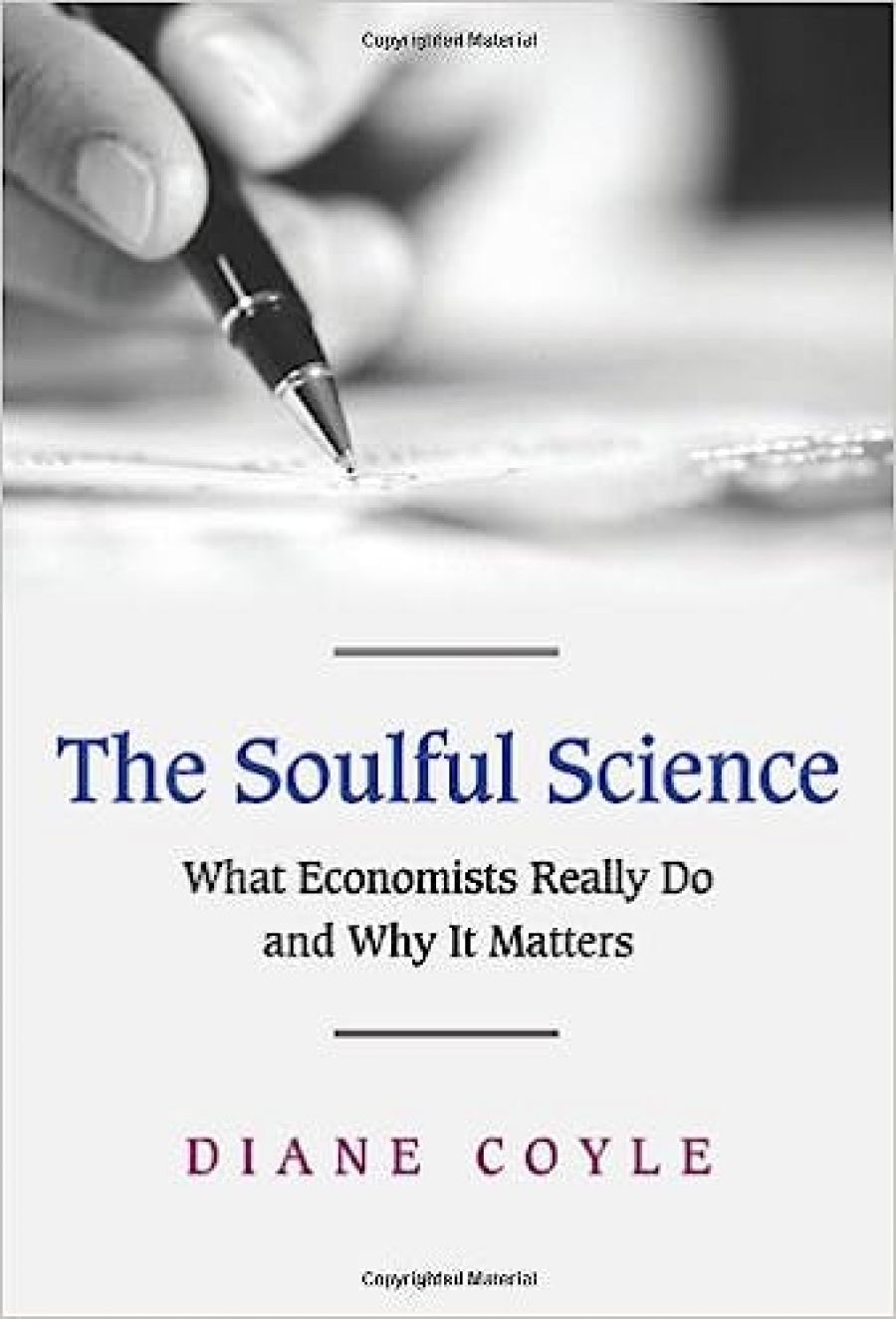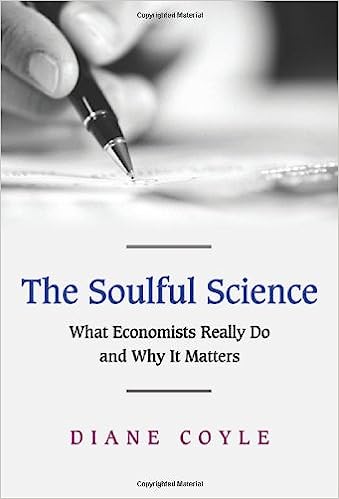
- Free Article: No
- Contents Category: Economics
- Review Article: Yes
- Article Title: A Passionate Guide
- Online Only: No
- Custom Highlight Text:
Diane Coyle has a passion for economics and believes that the object of her passion should possess a soul. She fails to convince on this point, but that is of little account. She has written an absorbing book that sets out what economists do and that provides a commentary on current thinking.
- Book 1 Title: The Soulful Science
- Book 1 Subtitle: What economists really do and why it matters
- Book 1 Biblio: Princeton University Press, $48.95 hb, 279 pp
- Book 1 Cover Small (400 x 600):

- Book 1 Cover (800 x 1200):

Whatever your political sympathies, the language of economics has become the language of power. In short, the way economists think drives out other ways of thinking. Should we not make decisions on public policy because they are morally right, not because they lead to efficient outcomes? The fact that economists themselves, according to Coyle, tend to be more rational and logical than the average person may also be a factor. Would you want to have one at your place for dinner?
Nevertheless, for Coyle and most economists, this system of thought is the jewel of the Enlightenment. Coyle is a strong advocate of ways of thinking that involve models. The modeller tries to understand the world by selecting ‘a small number of variables and relationships which can perhaps, with elegance and economy, explain the phenomena we observe’. The worth of economists rests with the quality of their analytical skills, not with their power of argument or exposition. Coyle says: ‘We use the mathematics for clarity and to ensure logical consistency … The value of mathematical modelling lies in the struggle to capture the essence of behaviour.’ She quotes Paul Krugman: ‘The clarity and power of economic analysis can spoil you: once you have a taste of what it means to have a really insightful model, you tend to be inhibited about looser speculations.’
Interestingly, it is this thinking that has clouded the professional reputation of John Kenneth Galbraith among many economists. One of the most influential economists of the postwar era, and a populariser with best-sellers such as The Affluent Society (1958), Galbraith may be a great writer but ‘many of us spurn [him] because he wasn’t a modeller’. Economists may agree with The Affluent Society but may not be ultimately persuaded, because he ‘gives us no grip on how to confront its hypotheses and claims with empirical evidence’. In short, ‘economics is not defined by its subject matter but by its way of thinking’. Much of The Soulful Science is spent discussing new approaches that deal with empirical data that cannot be incorporated easily into the traditional orthodoxy.
The first section looks at the fundamental questions of how countries grow and the problem of poverty. Next, Coyle examines the motivations and rationality of the individual. The vexed question of material wealth and happiness is reviewed. Increased happiness seems to accompany increasing prosperity only to a certain degree. Beyond this, prosperity does not appear to lead to greater happiness. While this finding may conform to Christian virtue, it is a challenge to the rational model. Finally, Coyle looks at man in his social context. How do economies and entities such as corporations evolve? How should we manage those famous ‘animal spirits’ that govern the activities of entrepreneurs? In each chapter, Coyle sets out the evidence and reviews the new thinking that has followed as a result.
The last chapter – the most personal and engaging – is entitled ‘Why Economics Has Soul’. For Coyle, ‘[t]his … is the heart of the matter. Economics is a science … because it tries to model human behaviour in general statements … with relatively few variables, and seeks to bring the models face to face with empirical evidence’. She predicts that in the next ten years new techniques and new data sets will ‘start to have a revolutionary impact on policy’, and concludes that there is ‘a new consensus as to what economics is about. Not the study of competitive markets but rather an understanding of society as the aggregation of millions of individual decisions, in specific contexts shaped by history and geography, and by our own evolutionary history.’
It is perhaps eccentric to claim a soul for something that displays these qualities. However, Coyle is convincing on the excitement of today’s economics and future opportunities. For those tempted to embark on the study of economics, Coyle is a good advocate and guide. The Soulful Science may be recommended wholeheartedly to students, practical economists and those interested in public policy.


Comments powered by CComment